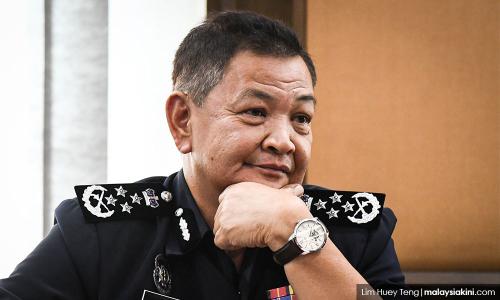With IPCMC Malaysia no longer seen as police state
LETTER | G25 joins other civil society groups in welcoming the appointment of Datuk Seri Abdul Hamid Bador as the new Ketua Polis Negara (IGP). We are encouraged that, as reported in the media, he has agreed to support the establishment of the Independent Police Complaints and Misconduct Commission (IPCMC), which has been a long-standing proposal to reform the Royal Malaysian Police into a respectable law enforcement agency.
By stepping forward to support this important institutional reform, the IGP has given New Malaysia a shot in the arm. We believe that with the IPCMC, Malaysia will no longer be viewed as a police state. It will instead be viewed favourably for its transparency and accountability, giving our country a good name.
The IPCMC was proposed by the Royal Commission to Enhance the Operation and Management of the Royal Malaysia Police (“Royal Commission”) in its report in May 2005, in response to growing public concerns over the abuse of power by the police as evidenced by several unexplained cases of deaths of detainees in lock-up cells, the disappearance of individuals involved in religious work, and the discovery of mass graves along the Thai border where human trafficking, drug smuggling and bribery was common knowledge to kampung people living near the border.
There were also allegations that the police was selective in acting on complaints involving those in power, including the royalty. Further, the police seemed to be in league with the religious authorities in stifling freedom of intellectual discussion on Islam and enforcing the Syariah laws on moral behaviour.
All these examples give a bad impression of the integrity of the police command structure and raise questions whether its actions are influenced by the politics of race, religion and royalty.
Under the previous government, the media had no freedom to participate actively in criticising the government, and to hold the institutions of law and order, including the police, accountable for their actions.
To the credit of the new government, it has freed the media from Putrajaya’s remote control. We hope Putrajaya will proceed without delay to implement the reform agenda of repealing the restrictive laws to enable the media to provide the checks and balances against abuse of power.
Investigative reporting by the media can be a powerful tool to expose the corruption and mismanagement at the top levels of government. The fear of media exposure is a strong weapon to deter bad behaviour among the high and mighty and among the police.

We are pleased to see that under the new IGP, the Malaysian police is accepting the principle that it needs to be monitored and overseen, in line with modern trends in institutional governance.
The IPCMC proposal is modelled after similar institutions around the world. The police in other countries have found that their visibility and accountability due to the system of internal checks and controls by an independent body and the external scrutiny by the media, civil society and parliament, instead of being obstructive, are actually beneficial to promote the image of policemen as public servants who work to keep the people safe from crime. There is close rapport in mature democracies between the local police and the community in maintaining law and order.
G25 would like to see a similar partnership between the police and the public in Malaysia. This can only be developed through mutual trust. For the public to put their trust in the police force, there is need for an independent process to oversee the police function and take immediate measures to investigate into allegations of abuse of power.
The intention behind the proposal for IPCMC is that it should play the role of a watchdog over the police and serve as an ombudsman of public complaints against unlawful police behaviour.
A watchdog does more than watch. It should also bite. If its investigation finds that there is a case for disciplinary action on police officers, the IPCMC will issue its verdict and instruct the Police Commission to carry out the disciplinary procedure.
The IPCMC will also serve as the link with the public to explain its investigation and findings so that the public is satisfied that appropriate action is being taken on their complaint.
G25 is confident that those appointed to serve on the IPCMC will be men and women of honourable character. They will sit there not to conduct a witch-hunt on the top ranks of the police, but instead, to deliver on the public desire for good practices in the administration of law and order in the country.
We are now in New Malaysia. We look forward to the IGP leading the police in making our hopes for a better country come true, by giving his full support for the functioning of the IPCMC.
G25 comprises a group of eminent Malay individuals who advocate improving the standards of governance in the administration of the country.
The views expressed here are those of the author/contributor and do not necessarily represent the views of Malaysiakini.
RM12.50 / month
- Unlimited access to award-winning journalism
- Comment and share your opinions on all our articles
- Gift interesting stories to your friends
- Tax deductable
